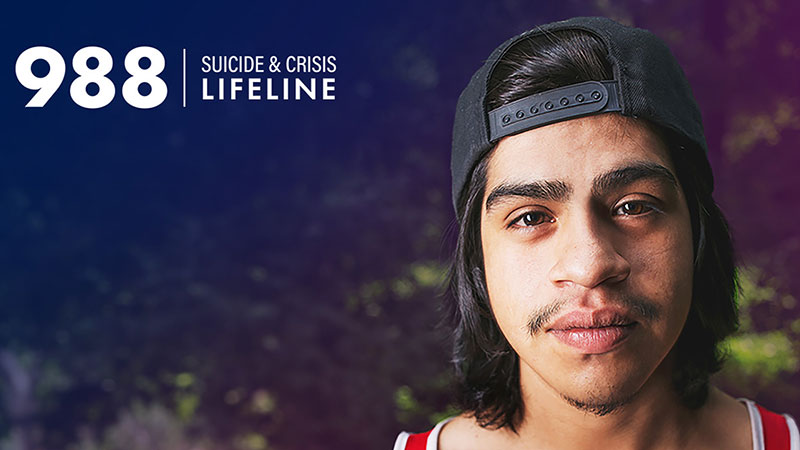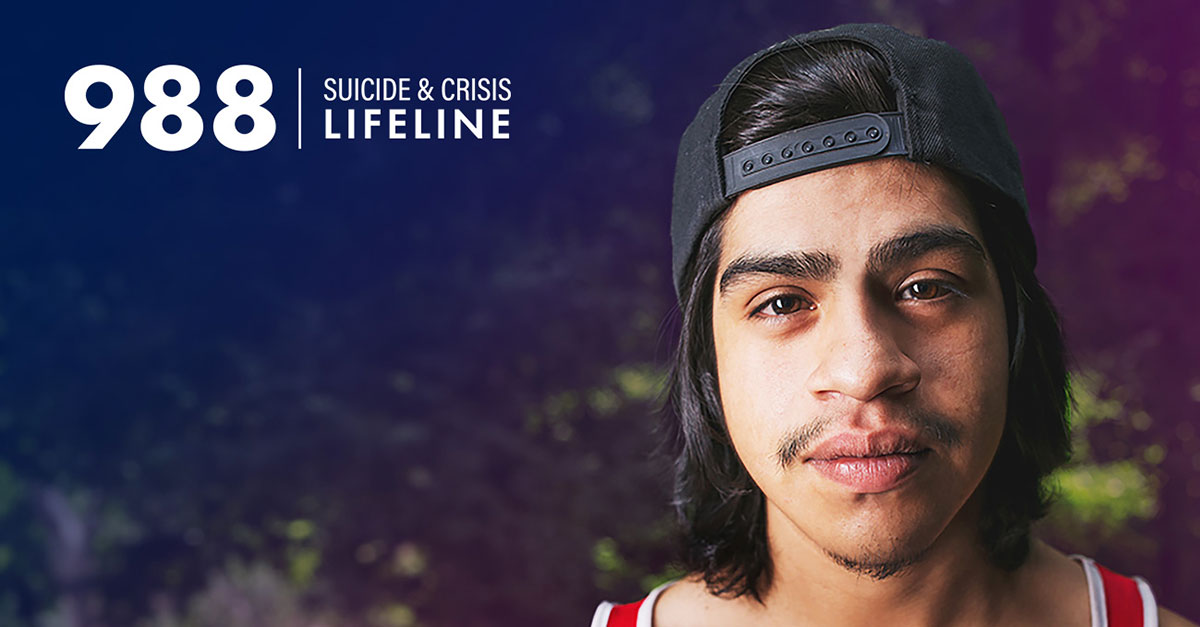September is Suicide Prevention Month, but it's always time to raise awareness, strengthen the dialogue and share resources to help prevent suicide. There are support services available in Fairfax County year-round to promote positive mental health and increase resilience.
Statistics
Did you know?
- Suicide is the 2nd leading cause of death for ages 10-14 and 25-34 in the U.S.
- A person dies by suicide every 11 minutes in the United States.
- People who identify as LGBTQ have higher rates of suicide.
- Attempted suicide was higher among black students than students from other groups.
- Veterans are at a 57% higher risk of suicide than their non-veteran peers.
Source: CDC, American Foundation for Suicide Prevention, With Hope Foundation
The CSB’s Wellness, Health Promotion and Prevention program provides regular trainings and presentations that educate and give attendees valuable tools that can be used to directly support individuals contemplating suicide. These include community-focused workshops, campaigns to raise awareness about mental health and evidence-based suicide prevention, and mental health crisis trainings for all residents. Additionally, the Suicide Prevention Alliance of Northern Virginia (SPAN) provides information and opportunities to raise awareness and share resources to prevent suicide.
Warning Signs — What to Look For
The Substance Abuse and Mental Health Services Administration (SAMHSA) indicate the following behaviors are warning signs for suicide:
- Talking about being a burden to others.
- Giving belongings away.
- Looking for a way to kill oneself such as searching online or buying a gun.
- Talking about feeling hopeless or having no reason to live.
- Talking about feeling trapped or unbearable pain.
- Increasing the use of alcohol or drugs.
- Acting anxious or agitated, behaving recklessly.
- Sleeping too little or too much.
- Withdrawing or feeling isolated.
- Talking about wanting to die or to kill oneself.
- Showing rage or talking about seeking revenge.
- Displaying extreme mood swings.

The National Alliance on Mental Illness cites risk factors that could increase an individual’s likelihood to experience suicidal thoughts:
- A family history of suicide.
- Substance use. Drugs can create mental highs and lows that worsen suicidal thoughts.
- Intoxication. Analysis from the CDC indicates around 1 in 5 people who die by suicide had alcohol in their system at the time of death.
- Access to firearms.
- A serious or chronic medical illness.
- Gender. Although more women than men attempt suicide, men are 4x more likely to die by suicide.
- A history of trauma or abuse.
- Prolonged stress.
- A recent tragedy or loss.
How to Respond to Someone in Crisis
- Use clear language such as, “Do you have a plan for how you would kill yourself?”
- Calmly ask supportive questions like, “Can I help you call your psychiatrist?”
- Express support and concern.
- Don’t raise your voice, threaten or argue.
- If you’re nervous, try not to fidget or pace.
- Assess the surroundings and remove items such as guns, knives, pills or items that could be used as a weapon.
- Be patient.
Take Action
Asking a person if they are suicidal does not increase suicides or suicidal ideation. Learn how to identify, talk to, and support someone who may be experiencing these warning signs by becoming a Mental Health First Aider and a Suicide Prevention Gatekeeper with the Fairfax-Falls Church Community Services Board.
Sign up for Mental Health First Aid and Question, Persuade, Refer (QPR) trainings. Additionally, the Lock and Talk Northern Virginia safety program offers free locking medication boxes and gun safety locks that fit a wide variety of firearms.
If you or someone you care about may be at risk of suicide, don't hesitate to reach out for help right away. These resources are available 24/7:
- Call 703-527-4077, or call or text 988 to reach the 24/7 Suicide and Crisis Lifeline.
- Text "CONNECT" to 855-11 to contact CrisisLink.
- Chat online at 988lifeline.org/chat
- Call Fairfax-Falls Church Community Services Board Emergency Services at 703-573-5679.
- In an immediate, life-threatening situation, call 911.
- If you are concerned, SPAN offers a Confidential Online Screening.
You can also come directly to the Fairfax-Falls Church Community Services Board’s Emergency Services office, which is open 24/7.
- Sharon Bulova Center for Community Health
8221 Willow Oaks Corporate Drive, Fairfax
703-573-5679, TTY 711
Using these tools and resources may identify and support people with increased risk of suicide, prevent suicide attempts, and promote services for long-term recovery. If you need help, talking with someone about your thoughts and feelings can save your life. There are steps you can take to keep yourself safe through a crisis. Call or text 988, call 703-527-4077 or chat online any time to reach the 988 Suicide & Crisis Lifeline.
For media inquiries, contact CSBCommunications@fairfaxcounty.gov.


